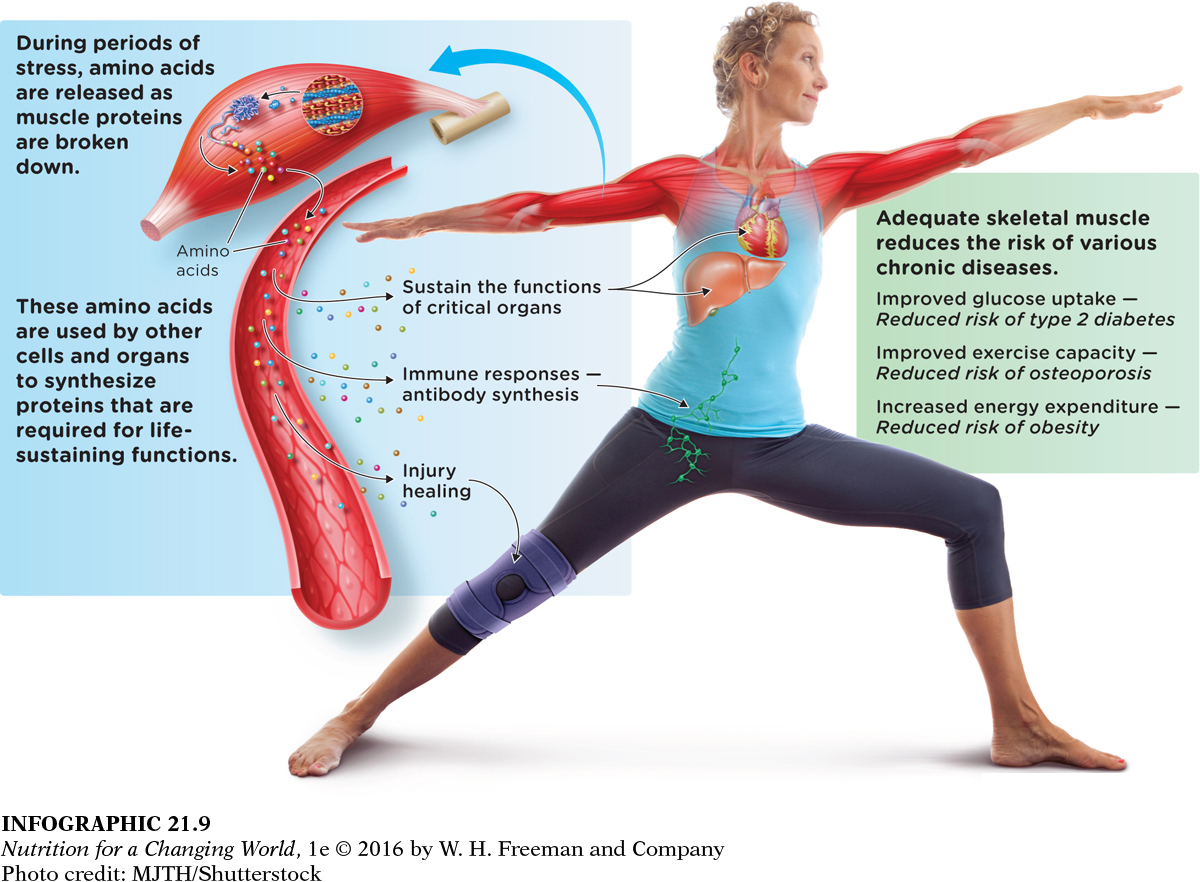MAINTAINING PHYSICAL STRENGTH FOR A LIFETIME
506
Nutrition is one important ingredient for a long and healthy life, but it’s not the only one. Equally important is staying active. This doesn’t have to be through deliberate exercise at a gym. Typical among people in the Blue Zones, including the Adventists, is a consistent pattern of remaining active well into later life through natural means. Whether through gardening or walking or swimming, older residents of Blue Zones maintain an active lifestyle that helps forestall the loss of muscle mass. And this turns out to be a crucial matter of health, for several reasons.

Adequate muscle mass is important for mounting an adequate response to various stresses and reducing the risk of several chronic diseases. Muscle serves as a reservoir of amino acids that can be used during periods of physiological stress such as illness, injury, or surgery to synthesize antibodies as part of an immune response. Adequate muscle mass is also essential for successful recovery from these conditions.
Maintaining adequate skeletal muscle mass (and preventing sarcopenia) also reduces the risk of developing type 2 diabetes, since muscle is the primary site of insulin-stimulated glucose uptake from blood and the major means of clearing excess glucose from the blood. Adequate skeletal muscle mass and strength allows for continued physical activity, which is required to maintain bone density and reduce the risk of osteoporosis. Finally, studies continue to confirm that maintenance of muscle mass and strength not only helps prevent falls and injury, but can help keep aging adults independent and promote longer, healthier lives. (INFOGRAPHIC 21.9)

Question 21.9
 Why does protein malnutrition increase the risk of death following major surgery?
Why does protein malnutrition increase the risk of death following major surgery?
During periods of stress such as recovery from major surgery, muscle tissues break down and release amino acids for use in repairing damaged tissues. An inadequate supply of protein, and therefore amino acids, could inhibit or prevent the healing process.
507
There is some evidence that physical activity not only makes a person feel better— boosting mental and physical fitness—but can also forestall some of the physiological effects of aging. Older adults who exercise have bodies that are in some senses physiologically younger than those who don’t.